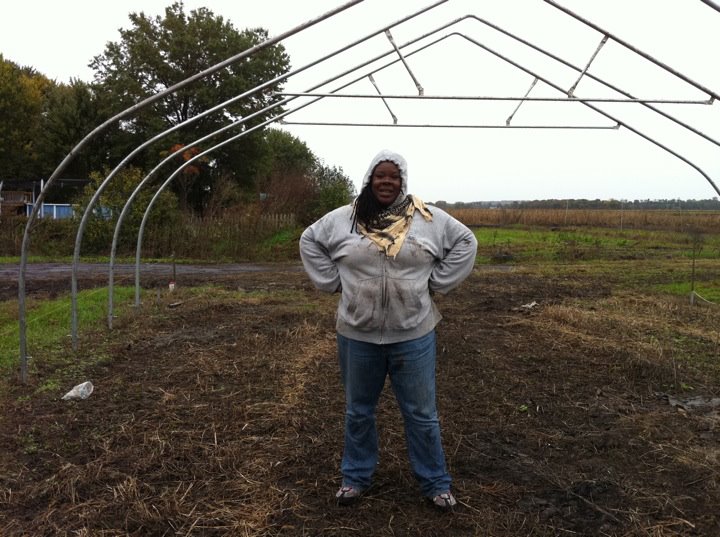 Every time I’m on social media, I am reminded of a growing trend that worries me — let’s call it dietary tribalism. I use this term to refer to the many fractured groups with conflicting dietary views who, for the most part, don’t realize just how much they have in common.
Every time I’m on social media, I am reminded of a growing trend that worries me — let’s call it dietary tribalism. I use this term to refer to the many fractured groups with conflicting dietary views who, for the most part, don’t realize just how much they have in common.
This recent piece in the New York Times about the “challenges of plant-based eating in a meat-based world” got me thinking, as it described several people’s efforts to adopt a vegan lifestyle and how they were fraught with challenges. Not only did I find this lens problematic (for one, not everyone finds the transition that difficult), but I was struck by how it repeated a familiar, yet inaccurate frame: that one is either a vegan or they’ll eat an entire cow in one sitting.
But it bothered me even more that the comments turned, predictably, into “veganism isn’t natural” vs. “everyone should go vegan.” It was almost the perfect microcosm of what happens in the food world when, rather than discuss issues we have in common, we take sides. All this mud-slinging detracts from a more important conversation.
As I see it, all Americans need to eat more plant-based foods and less processed food, and to be more mindful of where their food comes from, how it is grown, how the people who grow it are treated, and how our dietary choices affect the environment. Instead of these core messages sinking in, dietary tribalism is rampant these days. You have — just to name a few — the Paleo folks, the vegans, the raw vegans, the low-carbers, and the fruitarians. And while there is certainly something productive and empowering about engaging and connecting with like-minded individuals, these groups often turn into echo chambers where everyone agrees and, occasionally, points out how one or more of the other tribes has it all wrong. Meanwhile, Big Food continues churning out a litany of highly processed junk, young children are developing Type 2 diabetes (once known as “adult-onset diabetes”), genetically modified crops — and the pesticides they’re engineered to resist — are seemingly everywhere, and food support for the poor is seriously threatened.
In all our “no, but I have this mountain of research to back me up” statements, we easily overlook one critical unifying point — we’re all seeking out the same goal: health.
Regardless of our views on tofu, raw milk, and coconut oil, most of us who are passionate about nutrition and wellness are not happy with the Standard American Diet or the fact that highly processed and minimally nutritious “foods” are the norm. The fact that millions of Americans have minimal access to fresh, healthy food angers us. We don’t want kids’ food pumped with artificial dyes. We can’t believe it takes more than 30 ingredients to make a Dunkin’ Donuts blueberry cake donut. We are appalled at what the average elementary school student is fed in the cafeteria. We are terrified of Monsanto’s ever-tightening vice grip on global agriculture.
Of course we’re going to have differences. I certainly don’t agree with the schools of thought that consider fiber meaningless or think fruit should only be eaten on its own before noon or the idea that all humans must eat meat. And I laugh a little when I hear people tell me they think all whole grains and beans are “poisons.”
As a nutrition professional, I will set the record straight when I see basic nutrition information grossly distorted, and when I see food companies attempt to pass off highly processed junk as “better for you” simply because, say, the sugar has been replaced with aspartame.
But it’s the back-and-forth mud-slinging between members of different “dietary tribes” that troubles me most. I often imagine all the power that could be harnessed if we stopped and joined forces on some key issues, such as: getting food dyes and trans fat out of our food supply, demanding that the presence of genetically modified organisms and artificial hormones (at the very least) be labeled, ridding schools of nutritionally empty foods, and bringing more access to healthy foods in “food deserts.”
The past few weeks have seen the “pink slime” debacle, the arsenic in chicken feed horror, another crack down at a giant egg facility, and various food recalls (sushi tuna “scrape” being the latest). These are the issues that should awaken us from our dietary bubbles and get us thinking about the bigger picture. And yet, we are often told to pick one food system issue and privilege it over all others, rather than make space for multiple, complex possibilities. Take this recent Freakonomics video, for instance, which asks: “Does Eating Local Hurt The Environment?” It argues that eating less meat is more important than eating local, rather than making a place for both approaches.
Coalition politics are often the key to paradigm shifts. And it’s more than possible to disagree with someone on nutrition issues and still have some common goals. Who, after all, can claim to be against a better food system? Now, more than ever, the grass-fed beef advocates and the tempeh fans need to be sitting at the same table.
Related:



